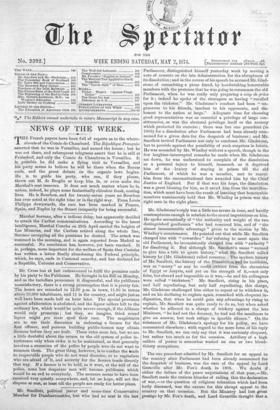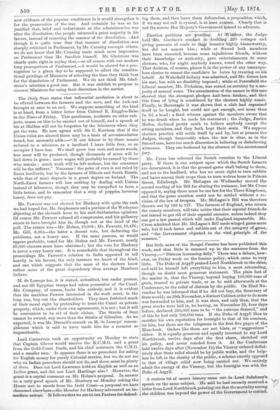The one precedent admitted by Mr. Smollett for an appeal
to the country after Parliament had been already summoned for the despatch of business, was the case of the appeal by Lord Grenville after Mr. Fox's death in 1806. We doubt if. either the failure of the peace negotiations of that year,—Mr. Smollett made the curious blunder of calling this the declaration of war,—or the question of religious toleration which had been hotly discussed, was the excuse for this abrupt appeal to the country on that occasion. But the Ministry had lost great prestige by Mr. Fox's death, and Lord Grenville thought that a
favour, instead of resenting the manner of the dissolution. And though 'it is quite true that that manner of dissolution vicas sharply criticised in Parliament, by Mr. Canning amongst others, we do not know that Mr. Canning made much more impression on Parliament than Mr. Smollett himself. Mr. Gladstone was clearly quite right in saying that,—at all events with our modern long prorogations of Parliament,—it would be absurd for a pro- rogation' to a given day to be supposed to affect the constitu- tional privilege of Ministers of selecting the time they think best for the dissolution of Parliament. We do not think Mr. Glad- stone's selection a good one. But it was childish to propose to censure Ministers for using their discretion in the matter. after the dissolution, the people returned a great majority in his



































 Previous page
Previous page